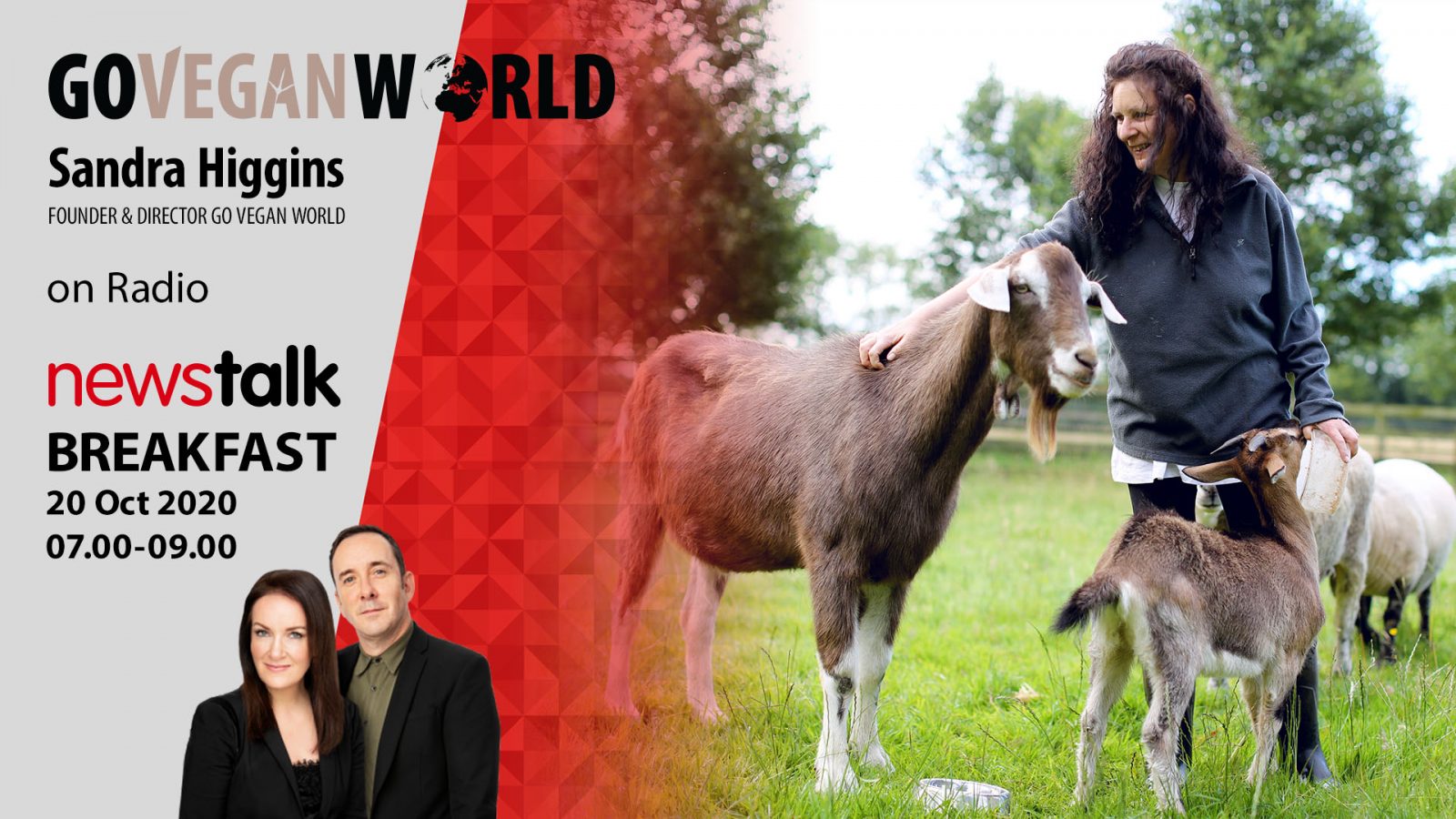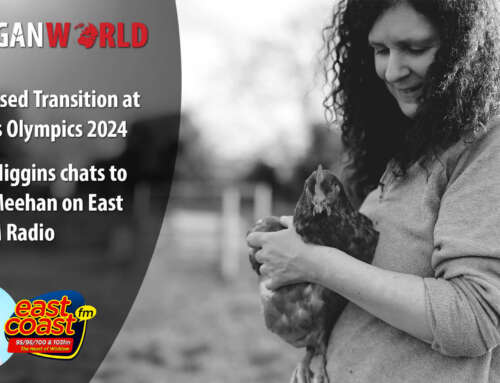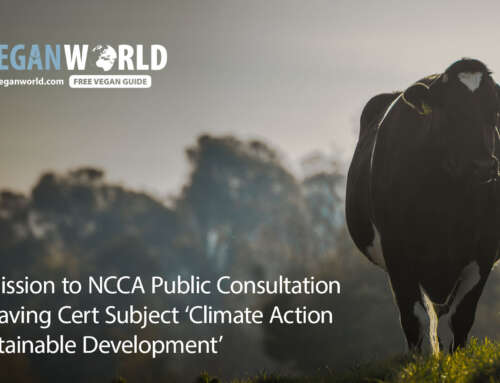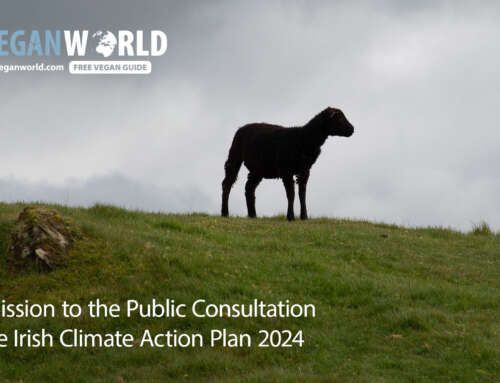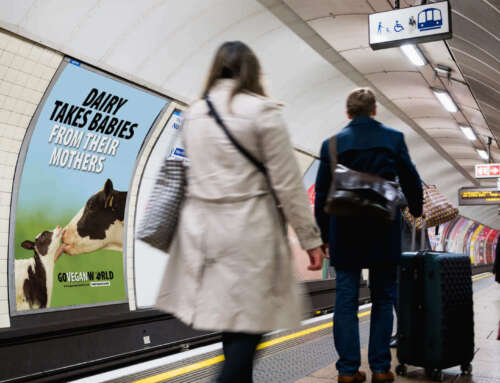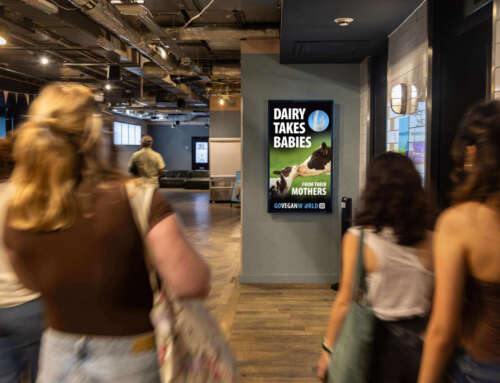The animal agriculture industry is feeling extremely threatened by the growth in the numbers of people going vegan and consuming a plant only diet, and, in response, is calling for a ban on the use of terms such as burger, sausage, cheese, milk, ice cream etc for plant based equivalents. The Irish Farmers Union is attempting to persuade Irish MEP’s to vote to ban words traditionally used by the animal agriculture industry such as burger, steak, milk, cheese etc.
Interview on Newstalk
Sandra Higgins was interviewed by Mark Cagney, along with IFA President Tim Cullinanon on this morning’s Newstalk Breakfast. You can listen to the the interview here.
Food terminology
The production of plant based equivalents of animal foods has a history that is thousands of years old, dating to Chinese Buddhist monk’s use of seitan (made from wheat gluten) and tofu (made from soya beans). There has been an enormous growth in the production and supply of plant based substitutes for animal foods which meets the demand by people for more ethical food production which necessitates the use of plants instead of animals. Many vegans would prefer to dissociate from terms which have been used to associate living, sentient animals with food, because they are not food, they are feeling beings with rights. It is perfectly feasible to eat a wholefoods, plant diet without these substitutes. Indeed, it is cheaper and in many cases healthier to do so. However, people buying and consuming plant based substitutes, for the most part, live in countries where we have all grown up consuming animal products such as burgers, cheese, milk and ice cream. It is a matter of convenience to have plant based substitutes replace dietary patterns and recipes based on animal products. Many of these products are a very useful way of meeting our nutritional needs. They ease the transition to a plant diet and to veganism for many people and that can only be a good thing. Most terms such as burger, sausage, etc refer to the shapes of food. Many animal versions of these products already contain more plant ingredients than animals’ bodies. It is the right of the plant based foods industry to label their products in a manner that facilites their sale.
Is this threatened Ban something Vegans should Be Concerned About?
The cost to the plant based food industry of changing it’s labelling and packaging would be harmful to a growing, ethical, and sustainable method of food production which, in every way, is better than using the lives and bodies of other animals who share our capacity to feel and have an interest in staying alive. Interestingly, there are two cases in the US that we are aware of, that have won their right to use dairy terminology (Miyoko’s Butter and Plant Based Milk in Virginia).
The EU has already banned the use of dairy terms such as milk on plant milks. The ban has done little to halt the rapid expansion of the market for plant substitutes for dairy products. Most people do not even notice the label. The Gestalt principles of perception operate even when most of an object is missing. Our minds are programmed to logically make sense of the world in terms of our understanding. That is why a carton of a product made from oats or soy does not have to be labelled ‘milk’ for the consumer to purchase it on the understanding that it is milk. The main concern in the consumer’s mind is that the milk did not violate the rights of other animals to their lives; that it is not harmful to the environment; and that it contributes to a diet that is nutritionally adequate, healthy, tasty, and affordable.
Misplaced Perception of Threat
The perception of threat by the animal agriculture industry is completely misplaced. The future of food production must, necessarily, be plant based and farmers will be necessary for the production of that plant food and are entitled to earn a living and be supported to transition in other ways to a more ethical, sustainable way of farming that excludes the use of other animals. The industry itself has seen the potential for expansion into the production of plant based foods; many of the vegan substitutes on our supermarket shelves are produced by the industry as it cashes in on this growing market. Given the current crises facing us in terms of a pandemic that has its origins in our oppression and use of other animals, combined with the loss of biodiversity and the climate crisis, which are caused, to a significant extent, by animal agriculture, surely it is in our interests to find solutions to halt disaster and ensure the sustainability of human life, than to argue over the terminology of the food we consume.
Misleading? The Kettle Calling the Pot Black
The argument that plant based substitutes for animal foods are misleading is ironic. The most misleading products of all on our shop shelves are those made from the bodies of other animals. The lengths to which the industry goes to to hide the standard legal practices on farms and in slaughterhouses, to fight against the science that explains the damage that animal agriculture inflicts on the environment and on other life, and to attempt to dispute the facts on the health benefits of a plant diet, are evidence that it is an industry based on misleading consumers. There isn’t a single producer of animal products that would sanction putting the facts of animal agriculture on its food packaging.
Milking It
Why the furore over plant based foods and not a similar reaction to the use by the cosmetic industry of the term ‘cleansing milk’, the fruit and veg industry’s use of terms ‘coconut milk’ and the ‘flesh’ of fruit, or the pharmaceutical industry’s reference to ‘milk of magnesia’ or the medical phrase ‘milking’ referring to the expression of the contents of a tube or duct to obtain a specimen or to test for tenderness? Has anyone ever reacted to the term ‘milking it’? It is a derogatory phrase referring to the unjust taking advantage of another; a term which aptly derives from the dairy industry’s unjust process of breeding mammals so that they can be impregnated and lactate milk for their babies which is then taken from them for human consumption; the atrocious breeding of animals to give birth and lactate even though they are prevented from this natural right to feed their babies who are separated from them after birth; the exploitative and violent process of selectively breeding animals so that their bodies can be exploited for dairy products that humans do not need, until the burden of metabolic stress, continual lactation and pregnancy, combine to reduce their production of milk and their lives are ended in slaughterhouses.
You can listen to the interview here.

